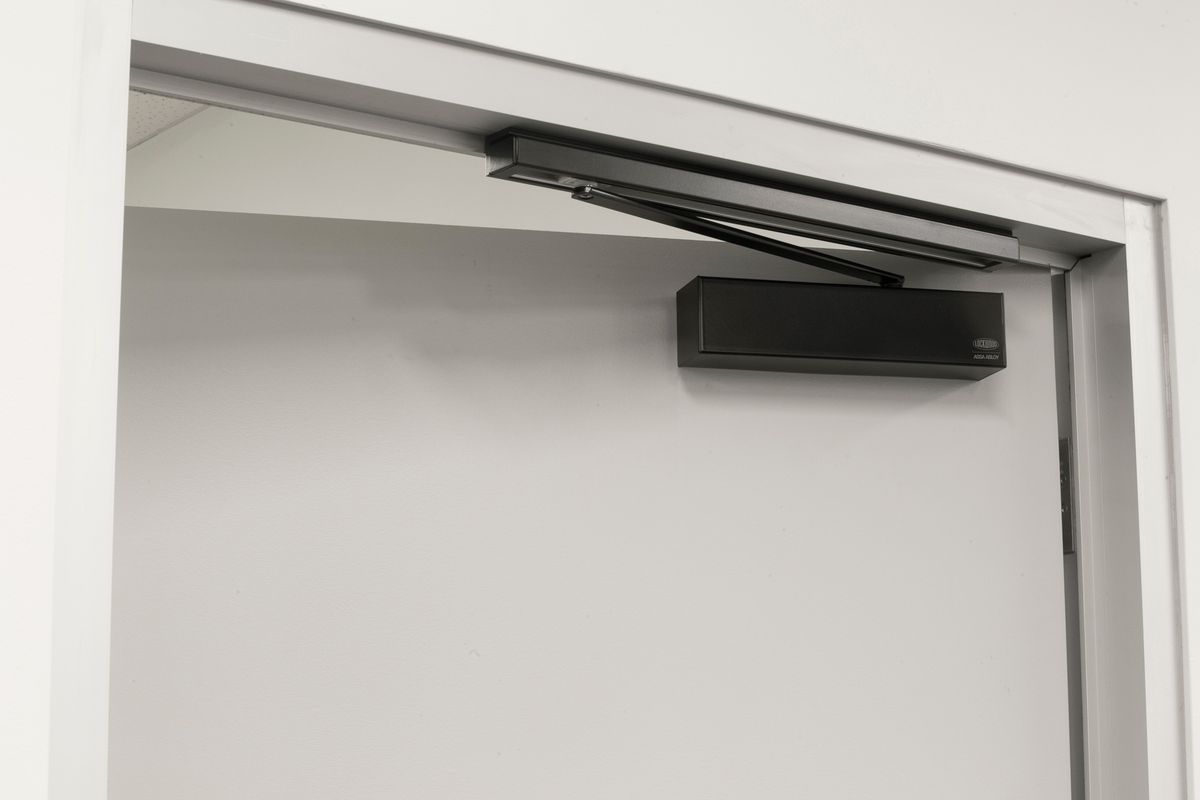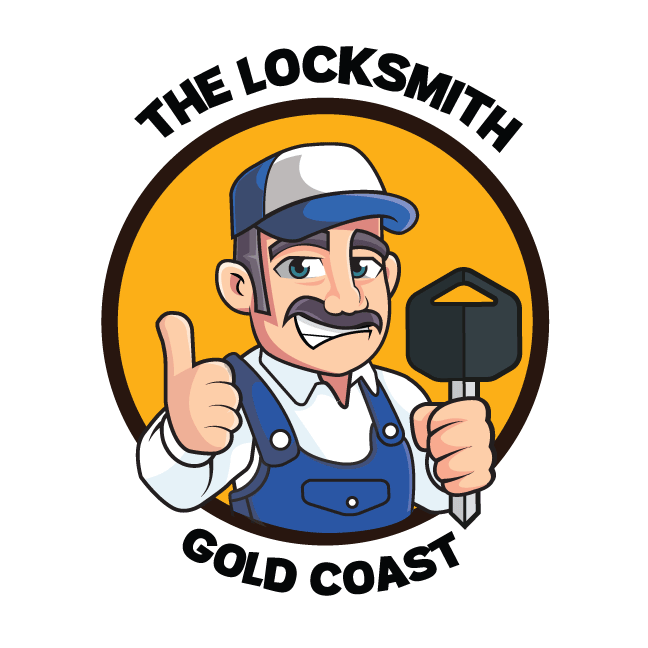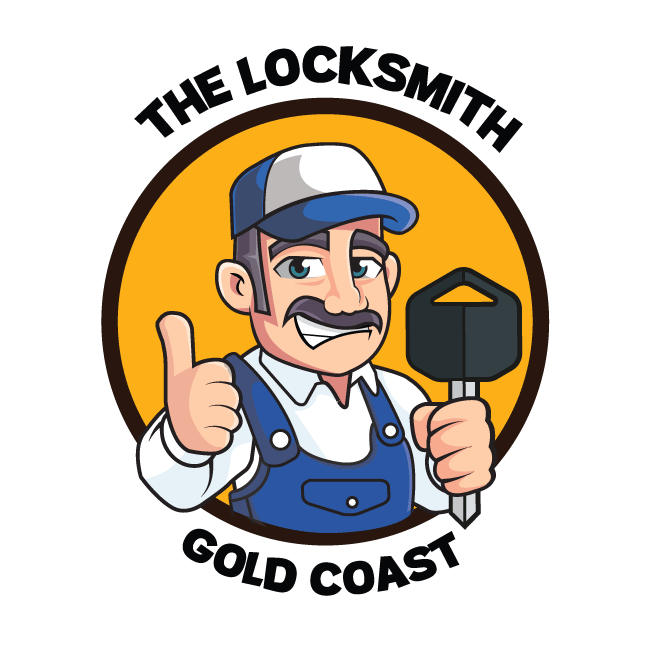
Automatic Door Closers
Automatic door closer - a true marvel of mechanical innovation! This ingenious device is designed to flawlessly regulate the speed and action of any door's swing. Say goodbye to unruly doors and hello to a world of seamless functionality. With our cutting-edge door closer, you can experience the perfect blend of precision and control. Transform your space into a haven of effortless elegance with the help of this remarkable invention. Upgrade your door's performance today and witness the magic unfold before your very eyes! Introducing the revolutionary manual closers - the ultimate solution for effortless door closing! These ingenious devices ingeniously store the sheer force exerted while opening the door, cleverly harnessing it within a sophisticated spring mechanism. With this cutting-edge technology, you can now bid farewell to the hassle of manually closing doors, as our innovative closers seamlessly and effortlessly take charge, ensuring a smooth and graceful closure every single time. Experience the convenience and efficiency of our state-of-the-art manual closers - the future of door closing is here!
Hydraulic Door Closer Repair & Replacement
How to Fix a Hydraulic Door Closer:
Check the Problem: Before you try to fix your hydraulic door closer, you should figure out what the exact problem is. Problems that happen a lot include fluid leaking, problems closing or opening, and squeaking sounds.
Safety First: Wear the right safety gear, like gloves and safety glasses, to keep yourself safe.
Check for Loose Screws: Look for screws or bolts that are loose on the door stopper. Use a tool or wrench to make them tighter. Loose nuts can often make things not line up right and stop working properly.
Check for Leaks: If your closer is leaking hydraulic fluid, you need to fix it right away. Most leaks are caused by seals that aren't working right. You might have to get a new seal if one is broken.
Putting rubbing oil or grease on the closer's moving parts will cut down on friction and stop the squeaking sounds. Make sure the oil you use is right for the type of closer you have.
Change the Speed of Closing and Latching: hydraulic door closer let you change the speed at which they close and latch. For exact information on how to make these changes, look at the manufacturer's directions.
Test the Door: Once you've made the necessary changes and fixes, test the door to make sure the closer is working right. It shouldn't be hard for the door to open and close.
Getting a new hydraulic door closer:
Buy a New Closer: You will need to buy a new hydraulic door closer if the old one can't be fixed or is beyond repair. Make sure that the new closer fits the size and type of your door.
Take Out the Old closing: First, take out the old closing. Usually, you have to unscrew it from the door frame and the door itself. Carefully follow the removal guidelines that came with the product.
Prepare the New Closer: Follow the manufacturer's instructions for any changes that need to be made before attaching the new closer. Setting the speed of closing and locking might be part of this.
Attach the New Closer: Put the new closer in the same spot where the old one was. Use the given screws or bolts to hold it in place. Make sure it is level and lined up right with the door and frame.
Test the New Closer: To make sure the new closer works, open and close the door several times. Make any other changes that are needed to make sure it works right.
Final Changes: Make any necessary changes to the speed of closing and locking. If your closer lets you, change the settings for the hydraulic pressure.
Regular Maintenance: To make your new hydraulic door closer last longer, do regular maintenance like lubricating it and checking for loose screws.
It's best to talk to a professional door closer expert if you aren't sure about any step or if the repair or replacement is too hard for you. They can make sure the job is done right and safely.
Factors to Consider When Replacing Your Automatic Door Closers
It's important to think about a few things when changing automatic door closer to make sure the new one fits your needs and door type. Here are some important things to think about:
Key Points: Think about the door's type (wood, metal, glass, etc.) and its size. Closers that can hold more weight may be needed for doors that are bigger and heavier. Make sure that the closer fits the material and size of your door.
Application: Figure out what the door will be used for. Is it a door to the inside, the outside, a fire door, or a business door that gets a lot of use? What kind of closer you need will depend on the job.
Type of Closer: There are different kinds of automatic door closer, such as overhead, surface-mounted, hidden, and in-frame closers. Pick a type of closing that fits the style and design of your door.
Closed Speed: Think about how fast the door closes. There are different closers that let you change how fast the door closes. In places with a lot of foot traffic, it's important to be able to control the closing speed to keep people safe and make sure everything runs smoothly.
Opening Force: Figure out how much force is needed to open the door. Accessibility guidelines, like those set by the ADA, should be met. Make sure that everyone can easily open the door.
Features That Hold the Door Open: Some automatic door closer have features that hold the door open at a certain angle. If this is important to you, choose a closer that has it.
Safety and Compliance: Make sure the closer meets all safety rules and standards, such as those for fire-rated doors. Check the building codes and accessible rules in your area to make sure that your door closer meets the requirements.
Durability and Weather Resistance: If the door will be open to the weather, pick a closer that is made to withstand it. Choose a durable closer that lasts longer for places that get a lot of use.
Brand and Quality: Choose a brand or maker that has a good reputation for making high-quality door closer. If you need to find new parts, this can help make sure that the system works well and is easy to get.
Budget: Figure out how much you can spend on the alternative. There are a range of prices for automatic door closer. Even though it's important to stick to your budget, put quality and dependability ahead of price.
Installation and Compatibility: Think about how easy it is to install the closer and whether it will work with the door and frame you already have. Some door closers need to be installed by a professional.
Guarantee: Look at the guarantee that the maker gives you. A longer guarantee usually means that the company is sure of the product's quality and durability.
Talk to a Professional: If you're not sure about the specs or which closer to pick, you might want to talk to a professional door closer technician or an engineer who specialises in door hardware. They can give you professional advice.
By giving these things careful thought, you can find the perfect automatic door closer for your needs, making sure that your doors are safe, work well, and last a long time.
Heavy Duty Door Closers
Heavy-duty door closer are made to handle big, heavy doors, so they can be used in places with a lot of foot traffic, like businesses and factories. These closers are usually stronger and last longer than regular door closer so they can handle a lot of use. Here are some important things to look for and think about in heavy-duty door closer:
Capacity for Weight: Heavy-duty door closer are designed to handle doors that weigh more. They come in different weight ranges, so it's important to pick one that fits the door's weight. For best efficiency, make sure that the closer can handle more weight than the door.
Door Size: Think about the door's size. Heavy-duty closer are needed for bigger doors. It's important to choose a closer that can handle the door's movement well without putting too much stress on its mechanisms.
Type of Door: Doors made of metal, wood, or glass are among the different types that have different weight and size properties. Make sure that the heavy-duty closer works with the door's material and design.
Useful Areas: Think about the area where the door closer will be put in use. Heavy-duty closers are good for places with a lot of foot traffic, exterior doors, warehouses, and other industrial sites. They should also be used on doors that will be exposed to harsh weather.
Strength: Heavy-duty closers are made to last longer than regular ones. To get models that will last a long time, look for ones that are made of strong materials like cast iron or steel that has been strengthened.
Closing Force: Think about how much force it takes to open and close the door. The closer needs to be changed to meet standards for accessibility, like those in the Americans with Disabilities Act (ADA).
Adjustability: The speeds at which many heavy-duty door closers close and latch can be changed. With this feature, you can fine-tune how the door works to meet specific needs and keep people safe.
Fire Safety: For fire-rated doors, it's important to choose a heavy-duty door closer that meets fire safety standards and can keep the door shut in case of a fire as opposed to a hold open closer.
Installation: Putting the closer in correctly is very important for it to work. Heavy-duty door closer should usually be installed by a professional to make sure they are in the right place and aligned properly.
Regulations and Safety: Make sure that the closer follows the safety and mobility rules in your area. Some of these rules are fire safety standards, ADA compliance, and building codes.
Brand and Quality: Pick a well-known brand or maker that is known for making heavy-duty door closer of good quality. Products that are made well are more likely to work reliably and last a long time.
Maintenance: To make the heavy-duty door closing last longer, it needs to be serviced regularly. This includes putting oil on the moving parts, checking for loose screws, and making sure that everything works right.
To make sure the heavy-duty door closer works right, is safe, and lasts a long time, it's important to make sure it fits the needs of your door and the space where it will be used.
Benefits of Replacing Your Door Closers
Getting new door closers can improve both their usefulness and safety in a number of ways. Here are some good reasons to get new door closers:
Better safety: Newer sliding door closer often have more advanced safety features, like back-check and delayed shutting mechanisms. These features help keep people from getting hurt by slowing down the door's shutting and making sure it doesn't slam shut.
Better security: Getting a new sliding door closer can make things safer. Some closers have hold-open features that let the door stay open at certain angles. This can help you keep an eye on who is getting in or make room for people walking by.
Accessibility Compliance: Newer door closers are made to meet standards for accessibility, like those in the Americans with Disabilities Act (ADA). This makes it easy for people with disabilities to open doors, which promotes inclusion.
Energy Efficiency: Some door closer are made to insulate and lock better, which can help make a home more energy efficient. By cutting down on draughts and air leaks, they help keep the temperature stable.
How long they last: Door closers may break down or stop working as well over time. Getting a new, high-quality closer instead will make them last longer and mean you won't have to fix or maintain them as often.
Smooth Operation: New overhead door transom closer work more quietly and smoothly, which is important in places like offices and libraries where noise could be a problem.
Customisation: Most modern door closers let you change how fast they close and latch. This customisation makes sure that the door works just the way it needs to for that setting and purpose.
Compatibility: If you replace your old sliding door closer with a new one, it will work with new door styles, sizes, and materials. It is important to do this for the best usefulness and aesthetic appeal.
Less care: Closers that are newer tend to need less care and be less likely to break. This can mean lower repair costs and less time spent shutting down for fixes.
Aesthetics: Modern door closers come in many styles and colours, so you can pick one that matches the look of your building or door. You can make your room look better by doing this.
Longer Life: Getting rid of old or worn-out sliding door closers and replacing them with newer models can make the door last longer because it puts less stress on the hinges, frames, and door itself.
Cost Savings: Replacing door closers does cost money at first, but the long-term benefits often trump the costs. Costs can be cut over time by making things more secure, more efficient, and less likely to break.
Safety Rules and Building Codes: Old concealed door closers may not always follow the most recent safety rules and building codes. By upgrading to a modern closer, you can be sure that you are following current rules.
There are many reasons to replace your door closers, such as better safety, security, accessibility, energy efficiency, and overall usefulness. It's a good investment that can make your building or area safer and easier to use.
Call The Locksmith Gold Coast Today For Your Door Closer Service
0422 350 607


